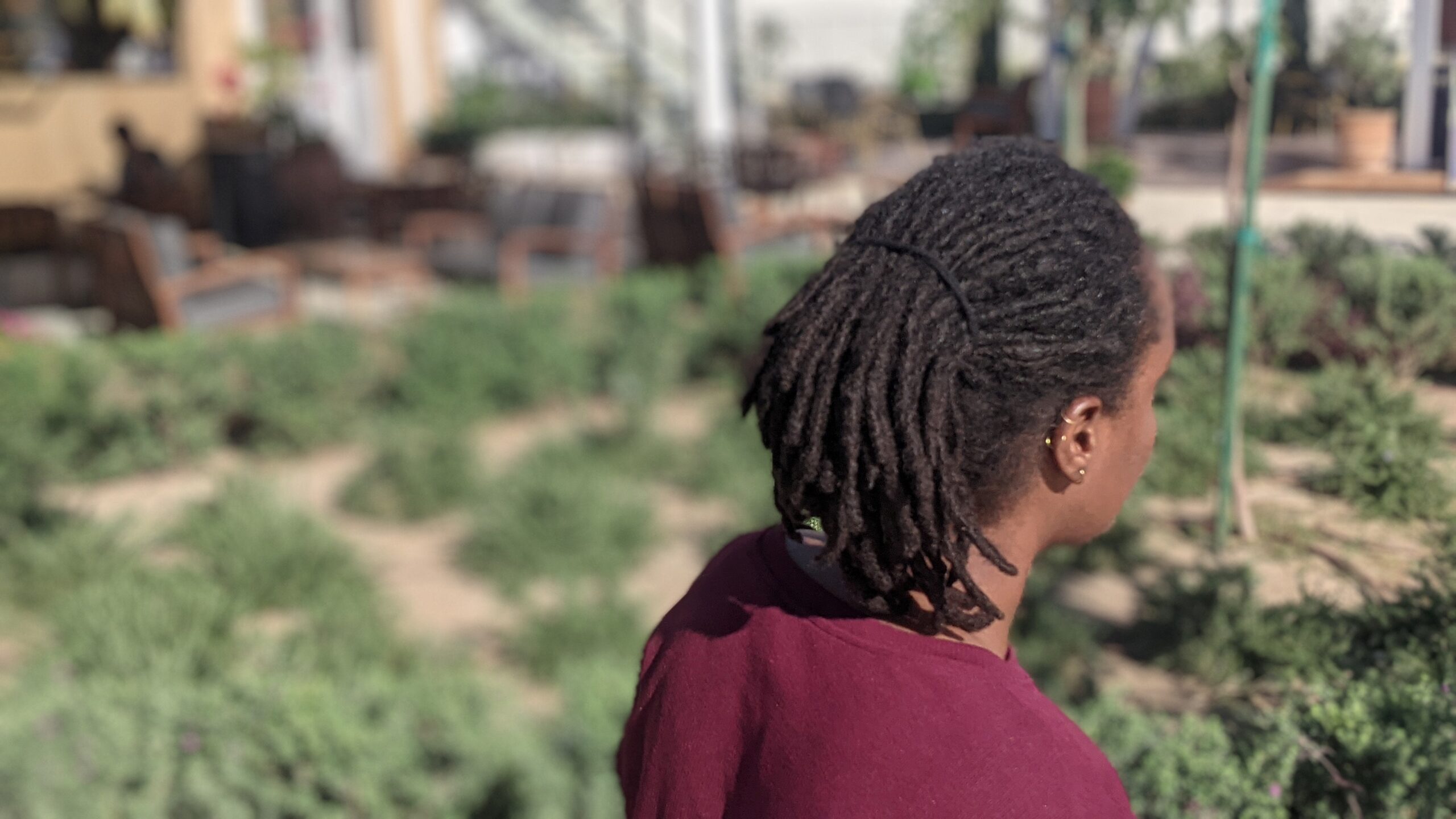
Quman fled from persecution due to her/their sexuality. As an asylum-seeker in Cyprus she/they are trying to build a new life of safety, dignity and acceptance. © UNHCR Cyprus
On the occasion of the 16 Days of Activism Against Gender-based Violence, UNHCR met with Quman* – a 27-year-old computer scientist from Somalia. Quman’s pronouns are she/they. Quman has experienced homophobic hatred in her/their home country, as well as rejection from her/their family. She/they have been exposed to further homophobic violence and abuse since arriving in Cyprus. Yet, she/they stand strong, embracing her/their sexual identity. And with courage, intelligence and dignity, she/they are forging a new life with bright prospects.
Quman is an asylum-seeker who fled persecution in her/their homeland and arrived in Cyprus in 2022 in search of safety and freedom. During her/their university studies abroad, she/they were outed as being bisexual by fellow students and then personally targeted by a Somali journalist who wrote about her/them in the media. After that there was no possibility to return home. Quman had to deny her/their sexuality to her/their family from whom she/they had no support and eventually cut all ties. Her/their fear of returning home remains real: homosexuality in her/their strict religious community is illegal and can lead to imprisonment, stoning or death. “If I returned home, I would be buried alive,” she/they said. Unable to stay in Rwanda after her/their studies, Quman had to flee in search of safety and a dignified life. “I hated that I had to start my life from zero, leaving behind colleagues, friends and opportunities to continue my studies with a master’s and PhD, but I had no other choice.”
When Quman arrived at the Pournara First Reception Centre on the outskirts of Nicosia, she/they kept a low profile, still feeling she/they had to hide. She/they remember that conditions at the Centre were overcrowded and unhygienic. After six weeks she/they were able to find a room in a shared apartment and move to the city. “I was still among the Somali community here, and I didn’t feel safe. I was alone. I was targeted by Somalis who had read about me from the media reports back home. I was physically attacked by my roommates and ‘accused’ of being gay and of not praying.” Quman’s roommates teamed up against her/them and tried to make her/them leave their shared apartment. “I had attended the Pride parade and they saw my flag at home and connected the dots.” Taking the roommates’ word over Quman’s – that she/they were out late, bringing home strangers, and using drugs and alcohol – the landlady cut off the electricity and even locked Quman out. “I went to the police, but they didn’t help,” said Quman. “Some wonderful individuals at the Cyprus Refugee Council (CyRC) helped me,” Quman recalls.
Quman received advice and psychosocial support from CyRC, UNHCR’s partner NGO in Cyprus that is assisting asylum-seekers and refugees under a UNHCR-funded project. She/they were able to build the courage and strength to move out. Quman has been working in a supermarket for a year now and is able to live independently. She/they are taking Greek language classes and online Certified Public Accounting and Web Design classes with a University in Europe.
About her/their sexuality, Quman says: “I love the fact that I am bisexual. But my coming out has always confused me as well,” since back home she/they couldn’t express her/their true self, and at university she was outed by others. Now she/they are part of an African LGBTIQ+ community group in Cyprus, where she/they feel accepted and Quman also supports members of the group. “We have more than 70 people in our WhatsApp group,” she/they said. “I find hope by helping others.”
“The future is bright and unlimited,” says Quman. “I feel that I’m progressing. One thing giving me courage, whatever pain and trouble comes along, is that I remember that it’s not lasting – it will pass.” About her/their hopes away from home, Quman says: “When I get recognised refugee status, my dream, because I’m outspoken, is that I want to help others. One of the things I really want to do is a master’s in education, and then a PhD. It’s healing for me. Right now, I’m pushing hard, but as an asylum-seeker it’s very limited in terms of what I can do.”
For other people facing similar pain and struggles in their lives, Quman said: “Give grace to yourself. You really understand what this means when things are really tough.”
*Name changed for protection reasons
**************************************************************************************
Lesbian, gay, bisexual, transgender, intersex or queer (LGBTIQ+) persons can face discrimination, persecution and violence, sometimes on a daily basis.
In certain countries, same-sex relationships are criminalized – sometimes punishable by death. Many LGBTIQ+ persons have no choice but to seek refuge elsewhere. But even in countries of asylum, they can face stigma and abuse.
In recent decades, the number of LGBTIQ+ refugees and asylum-seekers has risen, with most qualifying as “members of a particular social group” under the 1951 Refugee Convention, which defines the term ‘refugee,’ outlines their rights and sets out the legal obligations of States to protect them.
UNHCR works to try to protect all LGBTIQ+ refugees, asylum-seekers, internally displaced and stateless people and works with partners to provide inclusive services, protect their rights and identify safe options.
Find more information here about how UNHCR works to protect the rights of forcibly displaced LGBTIQ+ persons.
Μοιράσου το στο Facebook Μοιράσου το στο Twitter